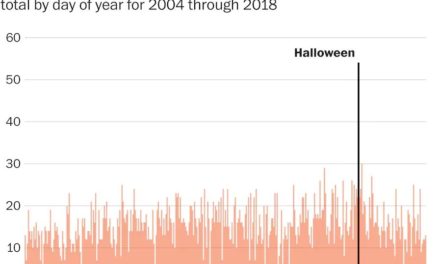Memphis Mayor Jim Strickland must feel like somebody who gets married, and shortly after returning from the honeymoon, the statements for his spouse’s maxed-out credit cards start arriving in the mail.
Then, the bank sends a foreclosure notice on her house, and his spouse said she forgot to mention that she had lost her job, her bank account is overdrawn, and she had cashed in her IRAs.
You get the picture. It’s hard to see how they’re going to climb out of the financial hole they’re in, and while the love may not be gone, life together sure feels different than expected.
It would be justifiable for Mayor Strickland to feel the same way. Since taking the oath of office, it seems like something on his desk has exploded every week and the rest of the things there give off a distinct ticking sound.
There’s body camera deployment, MATA financial crisis, zoo parking on Overton Park’s greensward, search for a change-making police director, minority business participation problems, climbing debt service, more money for pension and OPEB payments, replacement of the city radio system.
Council Complications
Decisions too long delayed can be delayed no longer. Negative budget dynamics too long glossed over can be glossed over no longer. The perfect storm of too little money, too much need, and bills coming due has blown in with gale force winds.
If things weren’t complicated enough for the mayor, then Memphis City Council kicks up a political maelstrom in City Hall, injecting itself into the greensward parking controversy, interfering with an existing contract between City of Memphis and Overton Park Conservancy (and contracts are solely within the mayor’s authority), blowing up a mediation process set in motion by the mayor, and thumbing their nose at park lovers whose simple request was to let mediation continue without interference.
Long-time observers of local government have said the City Council’s vote was the most cynical action by that body within memory. In comments, Council members suggested that they had broken Sunshine Laws with either calls or meetings in advance of the meeting and the final resolution had not been shared with the public.
There was Councilman Berlin Boyd’s obsequious defense of the zoo that proved he doesn’t understand the limited free admission policies at the zoo and parking policies on those days, there was Council Attorney’s Allen Wade’s meretricious behavior which proved once again how wise Shelby County Mayor Mark Luttrell is in refusing to hire a lawyer for his legislative body, and there was the most egregious suggestion of all – that these civically involved Memphians aren’t just as engaged on other challenging issues facing Memphis (but in a classic double standard, no one questioned zoo officials along the same lines).
A Different View of Things
In the middle of this contentious debate enflamed by City Council stands Mayor Strickland, who’s taking incoming from both sides. And if his official statement following the Council’s preemptive strike seemed to echo suggestions that activists should be as passionate about crime, blight, and other problems as they are about the zoo, we are told it was not the mayor’s intention to question the sincerity of park advocates or to suggest they aren’t concerned about these issues.
All in all, the Council vote helped to blow up the honeymoon period for what promised to be a new era for new leadership for City Hall.
It’s always an eye-opening experience for every new mayor to come face-to-face with the stark realities of city operations and that applies even to someone like Mayor Strickland who was a Councilman for eight years. It is only a mild overstatement to suggest that what the Council sees each time it meets is essentially a three-act play put on by the administration. As part-time elected officials with their own careers, it’s unrealistic for Council members to delve into every line item in the city budget or understand the nuances of every service in city government or to be expert enough to ask the kinds of questions that yield the most revealing information.
Consumed by requests for help by constituents, Council staff members have little time to analyze in great detail the dozens and dozens of resolutions, backup information, ordinances, zoning requests, and budget amendments coming at Council members day after day.
City Hall Camaraderie
Toxic relations between the Wharton Administration and City Council created an environment of distrust and division, which only exacerbated suspicions that the legislative body was not receiving facts that would ensure transparency and accountability.
In a world built on checks and balances, the environment resulted in an imbalance that thwarted shared decision-making and consensus priorities. Correcting the lack of trust between executive and legislative branches and providing more information to the Council are stated priorities set by Mayor Strickland, who had his own complaints as a Council member during the Wharton Administration about the need for better working relationships.
The new mayor’s biggest task is to come fully to grips with the depth of problems that have been held just out of view for years. For a long time, it seems like city government has lurched from one budgetary crisis to another year after year, producing the feeling by the public that no one is in charge or that its problems were insurmountable.
It has resulted in the erosion of public confidence that in turn reduces the effectiveness of city government to serve its citizens, and at its worse, it weighs into people’s decisions about whether to move into Memphis or remain in Memphis.
Mastering the List
Already, based on Mayor Strickland’s frequent updates to City Council – and more importantly, through City Council to the public – he’s in the process of developing a master list of city funding obligations, debts coming due, and funding required for basic levels of service.
It may well be the first time City of Memphis’s administration has ever had such a list.
Revenue departments have become part of city governments across the country. Their job is to track revenues to see if they are meeting projections, to determine which ones need to be increased, to identify new tax and fee sources, and to optimize collections.
But that’s different than the kind of revenue department needed by City of Memphis. It needs a department that maximizes revenues through strategic investments, infrastructure, and quality of life. A fundamental weakness in creating a strong economy of opportunity is the tendency to treat quality of life as assets as luxuries rather than necessities for city funding priorities.
Old Versus New
It is a central truth today that any city not treating quality of life assets as drivers of economic development is a city not realizing its economic potential. In this way, parks, bike lanes, greenlines, museums, and more have to find a more prominent place on City of Memphis budgets, and that too is another challenge for the Strickland Administration.
Too many of our economic development strategies are built on “old economy” beliefs rather than the realities of the “new economy.” In shifting this equation, Mayor Strickland can have his most profound impact on the future.
The old economy is about being a place where it is cheapest to do business, but the new economy is about being a place rich in ideas with talent as the driver. In the old economy, attracting companies was the priority, but in the new economy, attracting educated people is. In the old economy, high-quality amenities were a barrier for cost-conscious businesses, but in the new economy, physical and cultural amenities are keys to attracting knowledge workers and young adults.
In the old economy, regions won if they possessed a fixed competitive advantage, but in the new, regions succeed if organizations and individuals have the ability to learn and adapt. In the old economy, minority workers were sources for low-wage jobs, but in the new economy, African American entrepreneurs and businesses are the paths to prosperity.
In other words, we are often having an outdated conversation when it comes to economic development, particularly as it relates to quality of life. While economic development is not a government-led function, it does create the policies and the infrastructure that shape it. We begin by shedding the old economy thinking and getting the conversation right. That is a particularly important role for a city mayor.
Growing the Business
Back to the subject at hand, Memphis must have a growth and investment plan to increase city government revenues by expanding the economy with new businesses and new jobs. Every dollar in new revenue produced through growth is a dollar that does not come from increases in taxes and fees.
What has been missing are strategies to grow the business. City government cannot shrink from its work to make services more efficient and to ensure citizens get value for their taxes, but it must also make the investments that grow the tax base by strengthening neighborhoods, developing new economic engines, maximizing minority business, and most of all, producing a high quality of life that not only keep families from moving but attracting families back to Memphis.
Cutting budgets and shrinking services may in the short-term provide for balanced budgets, but in the long-term, they could erode Memphis’ ability to compete for jobs and business investments. Ultimately, we need a paradigm shift by being intentional about growth, being focused on increasing city revenues through growth, and creating bolder aspirations that become part of a growth DNA.
In an op-ed in The Commercial Appeal on July 19, 2014, Jim Strickland, then a City Council member, wrote: “As you can see, there are no easy answers to the budget crisis.” Little did he know at the time that statement would end up being a giant understatement.
***
Join us at the Smart City Memphis Facebook page for daily articles, reports, and commentaries relevant to Memphis.





We do not have a budget or cash issue in Memphis. If we did we would not see this headline in the CA.
“Attorney Allan Wade and his firm will earn $608,000 from city of Memphis this year” – Commercial Appeal.
This is a scandal, in a city where we are making public safety, education and quality of life sacrifices yet we are spending millions on legislative council.
Great article, Tom!
New Mayor = same old Memphis politics.
No doubt the rapid decline of Memphis continues.
This in today’s Daily News: “Hedgepeth also defended the resolution’s rapid move through council committees and to the full council the same day that the resolution was put in written form and made public, saying he was still working on it late the night before”.
Exactly how is that a defense of the resolution’s rapid move through the committee and council? Nowhere does he offer an explanation for the expedited nature of the resolution. Why that day and not the next council meeting? If this is such an important issue, why was a half-witted resolution slapped together at the eleventh hour instead of crafting said proposal over the course of many weeks? Why did he fear the public having access to the proposal for only a few short hours before it went before the full council? Does he simply lack the knowledge and the critical thinking skills to piece together the fact that the council has acted on a contractual relationship that was executed by and is the responsibility of the mayor’s office? Is he really so uninformed and out of touch with community as to believe that only those in Midtown object to the zoo’s continued use of the Greensward? “Save the Greensward” signs can be found throughout the city. Even if it were the case that only those in Midtown objected to parking on the Greensward, is he so dim as to not realize that in his comments he just established precedent (legally?) to override objections of any resident or neighborhood where the impact of the use of public assets are a concern? In cases such as this, the law is very much attuned to precedent and any deviation from that precedent on any grounds that appear even remotely subjective in nature become easy targets for future legislation. By what right did Hedgepeth have to vote against the proposed hotel at the corner of Front and Jackson, a project with support of the Office of Planning and Development and one that few if any in the city have any knowledge of and thus deny every resident the benefit of increased tax revenue critical to support services and amenities (a fact pointed out by other council members) simply because St. Jude did not want that particular hotel as a neighbor? Hedgepeth’s hypocrisy has certainly been established as part of the public record.
Not only does Hedgepeth appear to be inept, but I now question his intelligence and observation skills.
Just as Morgan before him, Hedgepeth’s would have been in far better position had he not said anything. His comments incriminate him and simply raise additional and darker questions. Then again, when there are those such as Hedgepeth that consider honesty, dignity and integrity as merely optional characteristics of their actions and service, it is hardly surprising that they would succumb to such myopic stupidity.
SCM,
Sorry, I meant to post the above under different topic. Would you please remove from this conversation? There is more than enough to be incensed about here without introducing Overton Park.
Thank you.
On topic here-
Does anyone else find a common sentiment between Herenton’s infamous “If you don’t like it here, get out” comment and Strickland’s much less direct but equally telling insinuation that those invested in Overton Park are not also actively involved in addressing countless other issues across the city? Both were meant to alienate a broad segment of the city’s population their commenters believed defined the “those people” they believed did not define their political base and thus were expendable. Of course, this same group is now composed of many that do far more than simply talk and debate various community ills, they are actively involved. Both comments were used to define a city that would be better known for excluding various opinions and ideologies in place of creating a culture of inclusion. Meanwhile we are continuously reminded that those we have so recently elected appear most comfortable simply “talking the talk”, but coming up far short where solutions and action are concerned.
History is determined to repeat itself but Strickland would do well to keep such sentiments to himself or the financial hurdles currently faced by the city will appear as mere speedbumps compared to an accelerated mass exodus of the city’s willing and capable residents. On a separate but related topic, I can only imagine how the same statement would be interpreted by the young educated professionals who have invested themselves in the issues at Overton Park. There would hardly be a more succinct method of making it clear that Memphis under the new administration will be very similar to the old except that the mayor and council might enjoy each other’s company to a greater extent.
Y’all better leave concilman Hedgepeth he will take his toys and go home and not vote
Urbanut: Do we really have to delete it? We like it.
Thanks-
I will copy it over to a more appropriate banner. I would not want to waste anyone’s time who believes this to be a conversation concerning the city’s long term investment strategies. Maybe it is enough to say that the council and mayor’s actions regarding Overton Park are the exact outcome one would expect considering the existing equation of city management and exemplify the established pattern of doing whatever appears easiest at the moment. That in turn makes me queasy when thinking about the difficult road ahead and our current representatives’ ability to navigate it.
A “No” uttered from deepest conviction is better and greater than a “Yes” merely uttered to please, or what is worse, to avoid trouble”. — Mohandas Gandhi
Great post! A much needed reminder that moving our City forward must occur by simultaneously addressing issues at many different levels. Crime, safety and schools are huge but not mutually exclusive to quality of life issues such as improving our parks as well as continued development of or City core and neighborhoods.
The Fairgrounds redevelopment is a good example of one of those “quality of life” projects that has been lost in the shuffle. I hope Mayor Strickland is able to put it back on the table at some point. Our family had a lot of fun attending the ULI meetings dreaming of all the cool stuff we could do at the Fairgrounds rather than having to go to some other City to cool off in the summer.
How can this city justify paying Wade $608,000 a year?